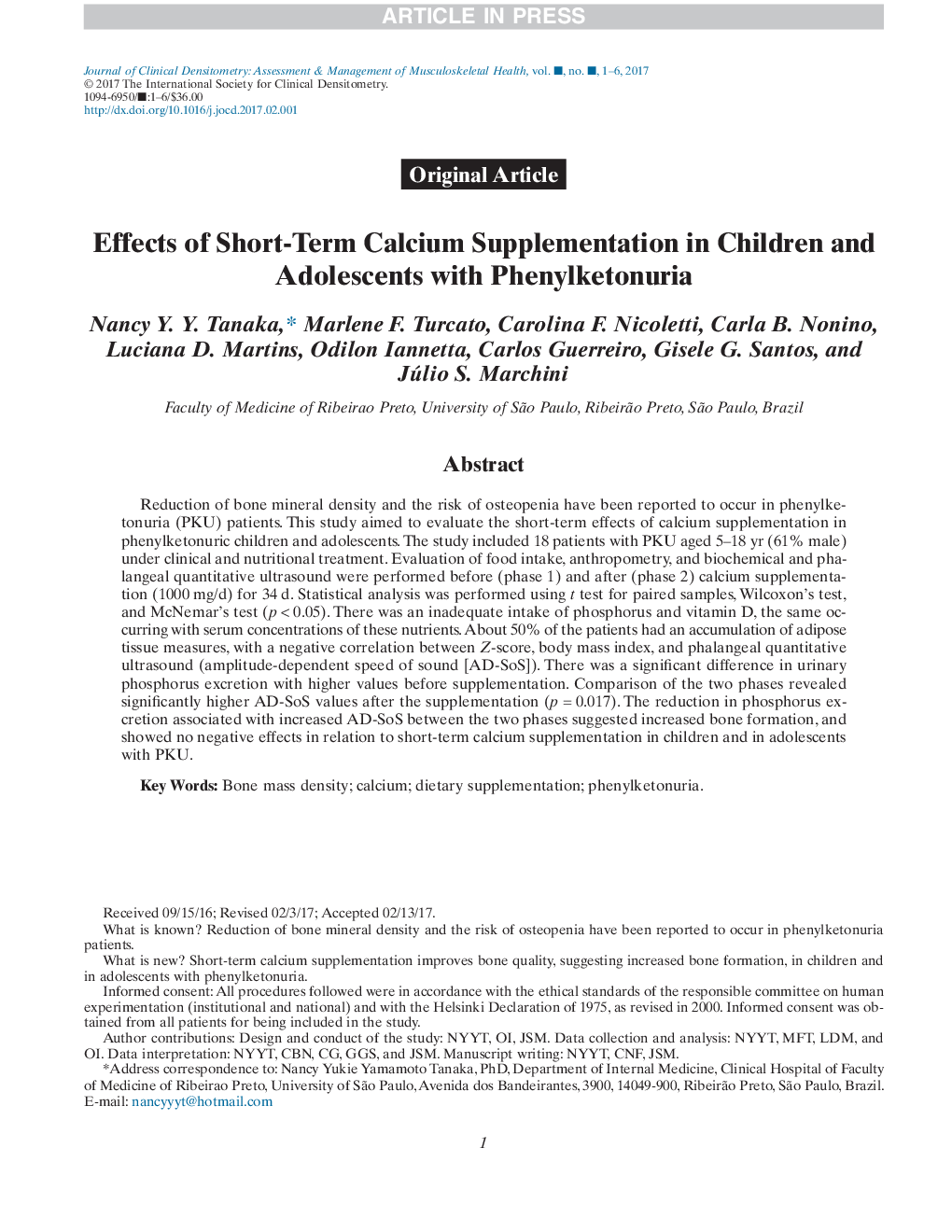| Article ID | Journal | Published Year | Pages | File Type |
|---|---|---|---|---|
| 8723003 | Journal of Clinical Densitometry | 2018 | 6 Pages |
Abstract
Reduction of bone mineral density and the risk of osteopenia have been reported to occur in phenylketonuria (PKU) patients. This study aimed to evaluate the short-term effects of calcium supplementation in phenylketonuric children and adolescents. The study included 18 patients with PKU aged 5-18 yr (61% male) under clinical and nutritional treatment. Evaluation of food intake, anthropometry, and biochemical and phalangeal quantitative ultrasound were performed before (phase 1) and after (phase 2) calcium supplementation (1000âmg/d) for 34âd. Statistical analysis was performed using t test for paired samples, Wilcoxon's test, and McNemar's test (pâ<0.05). There was an inadequate intake of phosphorus and vitamin D, the same occurring with serum concentrations of these nutrients. About 50% of the patients had an accumulation of adipose tissue measures, with a negative correlation between Z-score, body mass index, and phalangeal quantitative ultrasound (amplitude-dependent speed of sound [AD-SoS]). There was a significant difference in urinary phosphorus excretion with higher values before supplementation. Comparison of the two phases revealed significantly higher AD-SoS values after the supplementation (pâ=â0.017). The reduction in phosphorus excretion associated with increased AD-SoS between the two phases suggested increased bone formation, and showed no negative effects in relation to short-term calcium supplementation in children and in adolescents with PKU.
Related Topics
Health Sciences
Medicine and Dentistry
Endocrinology, Diabetes and Metabolism
Authors
Nancy Y.Y. Tanaka, Marlene F. Turcato, Carolina F. Nicoletti, Carla B. Nonino, Luciana D. Martins, Odilon Iannetta, Carlos T. Guerreiro, Gisele G. Santos, Júlio S. Marchini,
